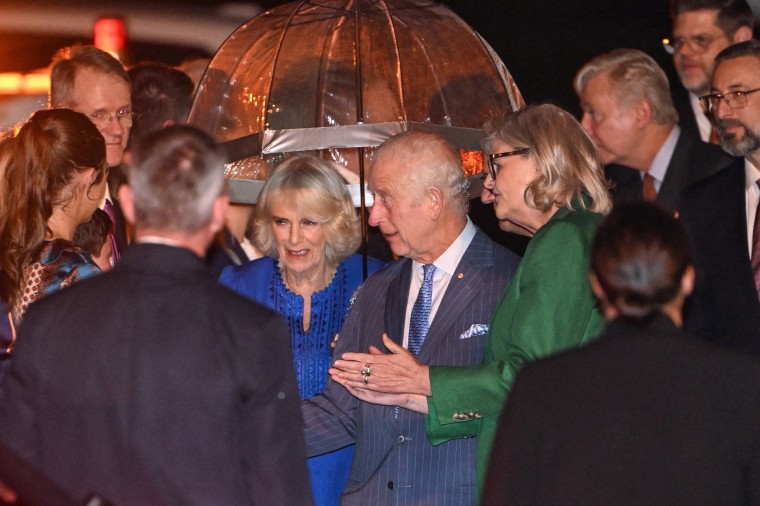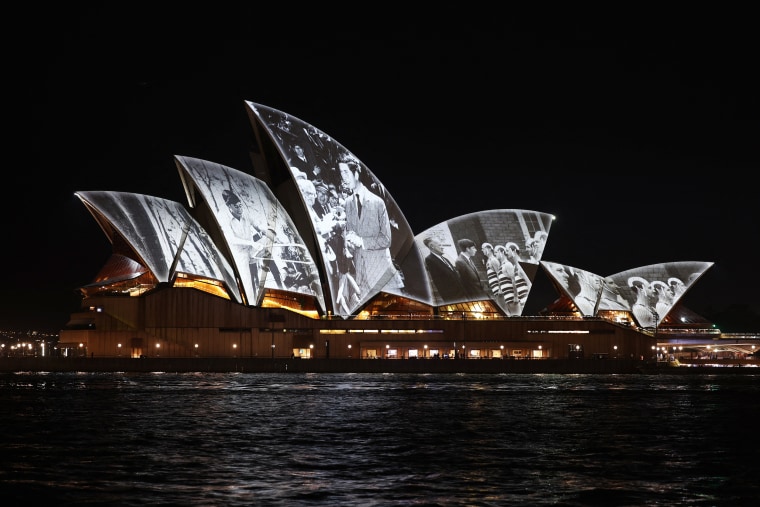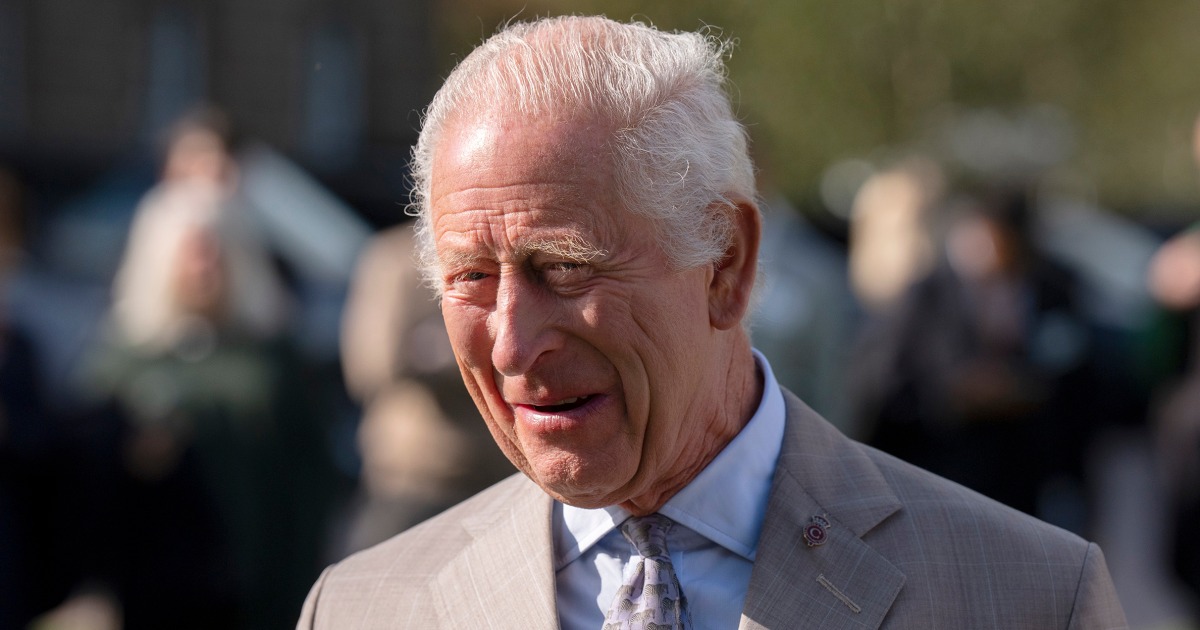LONDON — King Charles III has expressed “deep love and affection” for Australia, a former part of the British Empire. As he visits the country this weekend, he may find that Australians don’t feel quite as much affection for him.
Charles and Queen Camilla arrived Friday evening local time in Sydney, where a tribute on the sails of the city’s iconic opera house displayed a four-minute montage of images from previous royal visits.
Charles, 75, is Britain’s first reigning monarch to visit Australia in 13 years. His Oct. 18-26 trip to Australia and the Pacific island nation of Samoa marks his first visit to overseas realms since becoming king and his first major foreign trip since his cancer diagnosis.
Australia is one of 14 countries outside Britain where he remains the head of state, a role that is largely symbolic. All of them are members of the Commonwealth, a voluntary group of 56 independent states that were almost all formerly under British rule.
But there are growing questions in Australia, Canada and other countries as to whether they should cut ties with the British monarchy and become republics, a debate revived by the death of Queen Elizabeth II, Charles’ long-reigning mother, in 2022.
In 1999, a majority of Australians voted no in a referendum on transitioning to a republic. Prime Minister Anthony Albanese, a lifelong republican, had expressed openness to holding another vote on the subject, but his government said in January that it was “not a priority” ahead of Charles’ expected visit this year.
The king has said it is up to Australians whether they want to become a republic.
In the meantime, the country has taken other steps away from the royal family. Last year, Australia opted to put an Indigenous design rather than an image of Charles on its new $5 bill, the last banknote that had featured the British monarchy.
The royal visit to Australia includes a Monday reception at Parliament House in Canberra, the capital, where the king will meet with Albanese. But the premiers of Australia’s six states — New South Wales, Victoria, Queensland, Western Australia, South Australia and Tasmania — have all said they are unable to attend.

A spokesperson for Queensland Premier Steven Miles said he was busy campaigning for re-election, while Western Australia Premier Roger Cook is unable to attend due to “other commitments.” South Australia Premier Peter Malinauskas and New South Wales Premier Chris Minns have Cabinet meetings, their offices said, and Tasmania Premier Jeremy Rockliff is in the U.S. on a trade mission.
Despite this, all states will have representatives at the welcome event, including their governors.
Bev McArthur, a lawmaker in the state of Victoria and spokesperson for the Australian Monarchist League, said it was “entirely indefensible” that the premiers — the country’s most senior elected representatives — would not be in attendance, describing it in an email as “a snub, an insult and a slap in the face.”
“Their pathetic attempts to pretend their nonattendance is due to unavoidable diary clashes is spineless,” she said. “It’s an obvious nonsense.”
Nathan Hansford, co-chair of the Australian Republic Movement (ARM), said Charles would understand the premiers’ absence, as they are “no doubt a very busy group who are focused on running their governments.”
ARM launched a campaign this month branding the British monarch’s visit to Australia as “The Farewell Oz Tour” and a chance to “wave goodbye to royal reign.”
While the Australian Monarchist League is distributing thousands of Australian flags for the king’s arrival, ARM has called on members of the public to sign a virtual farewell card and buy T-shirts and tea towels as part of its campaign.
The republican group had requested a meeting with Charles during his visit. In a March response seen by NBC News, his assistant private secretary, Nathan Ross, said the king was acting on the advice of his ministers and the Australian government and that he and Queen Camilla “have a deep love and affection for Australia and Australians.”
Charles, who has previously been to Australia 16 times including six months he spent living there as a teenager, would not be surprised if he met with mixed reception, said NBC News royal commentator Daisy McAndrew.

But with his cancer treatment still underway, his willingness to make the trip shows “how important the realms and the Commonwealth are to him and his reign,” she said.
Eric Abetz, a Tasmanian minister and spokesperson for the Australian Monarchist League, said it was public opinion that mattered most, and that “robust research shows support for the constitutional monarchy continues to be strong.”
According to a YouGov poll published last year, about one-third of Australians want the country to transition to a republic as soon as possible, while 35% would prefer to remain a constitutional monarchy and the rest are undecided.
For a referendum to succeed in making Australia a republic, there would have to be a majority “yes” vote not only nationwide but also in at least four of the six states. Of the 45 referendums that have been held in Australia since 1901, only eight have successfully passed.
If Australia were to become a republic, it would follow the Caribbean nation of Barbados, which became the world’s newest republic in 2021 after opting to remove the British monarch as its head of state while remaining part of the Commonwealth.
Even the tribute at the Sydney Opera House has been cause for division, with Hansford calling the building a symbol of Australian creativity and independence.
“Our public spaces should reflect a story that is truly our own,” he said. “We look forward to the day when we can light up this iconic landmark to celebrate a head of state chosen by and for Australians.”
McArthur, by contrast, said it was a “fitting gesture to welcome Their Majesties, at the beginning of what I know will be an excellent visit.”
After visiting Sydney and Canberra, the royal couple will continue on to Samoa, another Commonwealth nation. During his four-day state visit, King Charles will join world leaders at the Commonwealth Heads of Government Meeting, where he aims to highlight the threat that climate change poses to Pacific island states.

Leave a Reply